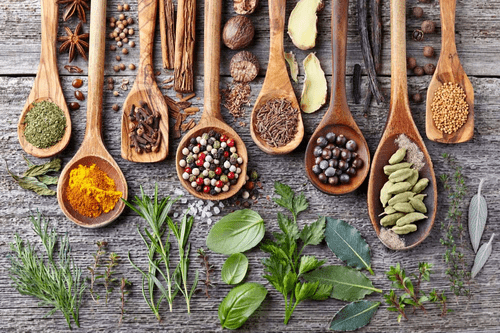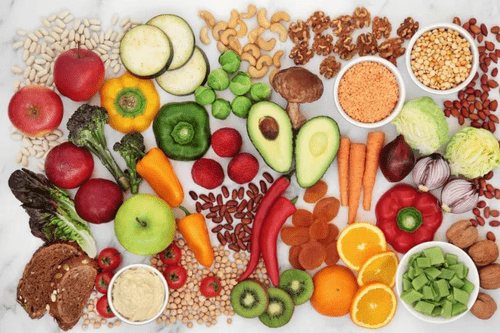An important hormone that regulates blood sugar is insulin.
It is produced in your pancreas and aids in the transfer of blood sugar to cells for storage. When cells lack the ability to use insulin properly, your blood sugar levels rise.
Your pancreas produces more insulin when it detects high blood sugar in order to overcome insulin resistance and lower your blood sugar.
This causes a typical complication of type 2 diabetes, the gradual loss of insulin-producing cells in the pancreas. Additionally, long-term high blood sugar levels might harm organs and nerves.
If you have prediabetes, a family history of type 2 diabetes, are overweight or obese, or have any of these conditions, you are most likely to develop insulin resistance.
How receptive your cells are to insulin is referred to as insulin sensitivity. You can decrease insulin resistance and your chances of developing several diseases, including diabetes, by improving it.
Here are 15 natural methods to increase insulin sensitivity, all supported by science.
Table of Contents
Natural Ways to Improve Your Insulin Sensitivity
An essential hormone called insulin facilitates the uptake of blood sugar into cells for storage.
High blood sugar results from insulin-resistant cells, which increases the risk of many diseases like type 2 diabetes, heart disease, and others if the situation persists.
You can lower your risk of developing these conditions by controlling your cells’ insulin sensitivity. Here are 15 tried-and-true natural strategies to increase insulin sensitivity.
1. Get More Sleep
Increasing sleep quality may also enhance insulin sensitivity.
In a 2015 study, 16 healthy participants who were not receiving enough sleep increased their sleep for six weeks by one hour each day. The additional rest improved insulin sensitivity.
2. Exercise More

Regular exercise has various advantages. They consist of improving insulin sensitivity, lowering stress, releasing endorphins, lowering blood pressure, lowering cholesterol, and supporting weight management and/or loss.
Regular movement and exercise can aid in blood circulation improvement and nervous system recovery. Aim for 30 minutes or more of physical activity each day.
3. Reduce Stress
Your body’s capacity to control blood sugar is impacted by stress.
Cortisol and glucagon are two stress hormones that are stimulated when the body is prompted to enter “fight-or-flight” mode.
Glycogen, a type of stored sugar, is broken down by these hormones into glucose, which enters the bloodstream and is used by the body as an immediate source of energy.
Chronic stress, which stimulates nutritional breakdown and raises blood sugar levels, unfortunately keeps your stress hormone levels high.
Additionally, stress hormones increase insulin resistance in the body. As a result, nutrients are less likely to be stored and are more readily available in the bloodstream for utilisation as fuel.
In fact, numerous studies have discovered that insulin sensitivity is decreased by high levels of stress hormones.
Exercise, sleep, and meditation are excellent stress-reduction techniques that improve insulin sensitivity.
4. Lose Weight
Insulin sensitivity is decreased and the risk of type 2 diabetes is increased by excess weight, particularly around the abdomen.
This can be accomplished in a variety of ways, including by producing hormones in the liver and muscles that encourage insulin resistance.
Numerous research back up the assertion that having more belly fat is associated with having less insulin sensitivity.
Fortunately, shedding pounds can help reduce belly fat and improve insulin sensitivity. If you have prediabetes, it might also help lower your risk for type 2 diabetes.
5. Add a Pinch of Cinnamon
Cinnamon is a delicious spice that is rich in plant-based components.
Additionally, it is renowned for its capacity to lower blood sugar levels and improve insulin sensitivity.
For instance, one meta-analysis discovered that daily cinnamon consumption of 1/2–3 teaspoons (1-6 grammes) significantly lowered both short- and long-term blood sugar levels.
According to studies, cinnamon improves insulin sensitivity by making muscle cells’ glucose receptors more accessible and effective at delivering sugar to the cells.
It’s interesting to note that some research has revealed cinnamon to possess substances that can imitate insulin and operate directly on cells.
6. Eat More Soluble Fiber
Insoluble fibre lowers cholesterol and curbs appetite. High soluble fibre consumption and improved insulin sensitivity have been linked in a number of studies.
Additionally, soluble fibre supports the growth of the good bacteria in your gut, which has been associated with improved insulin sensitivity.
Legumes, oats, flaxseeds, vegetables like spinach and cauliflower, as well as fruits like oranges, tangerines, and apples are foods high in soluble fibre.
7. Reduce Your Intake of Added Sugars
Sugars introduced during processing are present in foods that have been overly processed. Foods that have a lot of added sugar also contain a lot of fructose.
Consuming a lot of fructose can raise your chances of developing insulin resistance.
Numerous research have revealed that consuming more fructose can make diabetics more insulin resistant.
Therefore, you should restrict things like sweets, sugary drinks, cakes, cookies, and cakes in order to lower the amount of added sugar.
8. Add Spices and Herbs to Your Cooking

Long before they were utilized in cooking, herbs and spices were used for their therapeutic benefits.
However, it wasn’t until recent decades that researchers started looking at their health-promoting capabilities.
Fenugreek, turmeric, ginger, and garlic are a few herbs and spices that have had potential outcomes for improving insulin sensitivity.
9. Drink More Green Tea
A great beverage for your health is green tea.
It’s also a fantastic option for those who have type 2 diabetes or are at risk of developing it. Drinking green tea has been shown in numerous trials to improve insulin sensitivity and lower blood sugar.
For instance, one review of 17 studies looked into how green tea affected insulin sensitivity and blood sugar levels.
It was shown that consuming green tea dramatically enhanced insulin sensitivity and decreased fasting blood sugar.
10. Try Apple Cider Vinegar
Vinegar is a fluid with several uses. Along with many other purposes, you can use it to clean or as a cooking ingredient.
In the world of natural health, apple cider vinegar, a very well-liked beverage, also contains a significant amount of it.
By lowering blood sugar and enhancing the efficiency of insulin, vinegar may help improve insulin sensitivity.
Additionally, it seems to postpone the stomach’s release of food into the intestines, allowing the body more time to absorb sugar into the circulation.
11. Reduce Carb Intake
The primary factor that raises blood levels of insulin is carbohydrate consumption.
The pancreas releases insulin to move sugar from the blood into the cells when the body turns carbohydrates into sugar and releases it into the blood.
Cutting back on carbohydrates may improve insulin sensitivity. Because high-carb meals frequently cause blood sugar to surge, the pancreas is under extra strain to eliminate sugar from the circulation.
Another strategy to improve insulin sensitivity is to equally distribute your daily carbohydrate consumption.
The body receives less sugar at meals while eating smaller amounts of carbohydrates frequently throughout the day, which facilitates insulin’s function.
Research demonstrating the advantages of regular feeding for insulin sensitivity further supports this.
12. Eat More Fruits and Vegetables

Fruits and vegetables are not only nutrient-dense, but they also have significant positive impacts on health.
Particularly rich in plant components with antioxidant capabilities are coloured fruits and vegetables.
Free radicals are molecules that can hurt the body by causing detrimental inflammation, and antioxidants bind to and neutralise these molecules.
Numerous studies have discovered a connection between consuming a diet high in plant-based components and improved insulin sensitivity.
Stick to standard serving sizes when adding fruit to your diet, consuming no more than one piece at a time and no more than two pieces daily.
13. Avoid Trans Fats
In animal research rather than in human studies, there is a stronger correlation between trans fats and insulin resistance.
Nevertheless, it is recommended to stay away from them as they raise the risk of numerous other illnesses.
Baked goods, donuts, and fried fast food are examples of foods that frequently include trans fats. The majority of processed foods include trans fats.
14. Drink Less Alcohol
To put it simply, alcohol is a toxin. Even while wine may contain antioxidants, your body nevertheless perceives it as a threat to your health in most cases.
Your liver essentially ceases performing much else once alcohol is present and instead concentrates on trying to get the toxin out of your system as quickly as it can.
While some studies have linked “moderate” alcohol use to better blood sugar levels, there is a very fine line between what is beneficial and what is dangerous.
However, according to other research, even 30 days without alcohol can result in a noticeable improvement in your sensitivity to insulin.
15. Try a Supplement
It’s a relatively new concept to think about taking natural supplements to improve your insulin sensitivity.
Numerous supplements may improve insulin sensitivity, however the most convincing research supports the benefits of chromium, berberine, magnesium, and resveratrol.
- Magnesium: A mineral called magnesium interacts with insulin receptors to help the body store blood sugar. According to studies, insulin resistance and low blood magnesium levels are related. Magnesium supplementation could improve insulin sensitivity.
- Resveratrol: Red grape skin and other berry skin contain the polyphenol resveratrol. Although its role is unclear, it may improve insulin sensitivity, particularly in people with type 2 diabetes.
- Berberine: A plant compound called berberine is obtained from several herbs, including the Berberis plant. Although its precise impact on insulin is unknown, some studies have found that it improves insulin sensitivity and decreases blood sugar.
- Chromium: The mineral chromium plays a role in the metabolism of carbohydrates and fats. According to studies, supplementing with chromium picolinate at doses of 200–1,000 mcg may enhance the capacity of insulin receptors to lower blood sugar.
It’s advisable to see your doctor before beginning treatment with them.
Why Improving Insulin Sensitivity Isn’t Complicated?
Everything you already know about enhancing your general health is summarised in this list. These behaviours will help you live a longer, fuller, and healthier life whether you have diabetes or are dealing with insulin resistance.
These behaviours will lower your chances of obesity, cancer, dementia, hypertension, heart disease, and more!
Making wise decisions about exercise, nutrition, weight reduction, sleep, stress, and alcohol most of the time cannot be made up for with all the drugs and medications in the world!
If the thought of handling everything at once overwhelms you, pick one or two things to concentrate on for the next six months.
Once you’ve completed those, you might discover that you’re anxious to begin working on the others.
Conclusion
An important hormone with numerous functions in the body is insulin. When your insulin sensitivity is low, your pancreas is under pressure to produce more insulin in order to remove sugar from your blood.
Chronically high blood sugar levels, which are linked to low insulin sensitivity, are likely to raise your risk for a variety of illnesses, including diabetes and heart disease.
Thankfully, there are lots of things you can do to raise your insulin sensitivity naturally.
To help improve your insulin sensitivity and reduce your risk of disease, think about experimenting with some of the suggestions in this article. However, before making any changes to your treatment plan, consult a healthcare provider first.
Frequently Asked Questions
Can You Restore Insulin Sensitivity?
Although it is not usually symptomatic, insulin resistance can result in long-term illnesses such diabetes, coronary artery disease, and metabolic syndrome.
With exercise, a healthy diet, weight loss, and, if necessary, medication, insulin resistance can be reversed.
What Vitamin Increases Insulin Sensitivity?
By boosting insulin receptors or the sensitivity of insulin receptors to insulin, as well as by having an impact on peroxisome proliferator-activated receptors (PPAR) and the regulation of extracellular calcium, vitamin D improves insulin sensitivity in muscle cells.
What Naturally Helps Insulin?
Fenugreek, turmeric, ginger, and garlic are a few herbs and spices that have had potential outcomes for improving insulin sensitivity. seeds of fenugreek.
They include a lot of soluble fibre, which makes insulin work better.
Sources:
- https://academic.oup.com/sleep/article/38/5/707/2416915
- https://www.healthline.com/nutrition/improve-insulin-sensitivity
- https://diabetesstrong.com/improve-insulin-sensitivity/
- https://www.ncbi.nlm.nih.gov/books/NBK209038/
- https://pubmed.ncbi.nlm.nih.gov/1605044/
- https://www.ncbi.nlm.nih.gov/pmc/articles/PMC3050109/
- https://www.ncbi.nlm.nih.gov/pmc/articles/PMC4038351/
- https://physoc.onlinelibrary.wiley.com/doi/full/10.1113/jphysiol.2009.175489
- https://pubmed.ncbi.nlm.nih.gov/18234131/
- https://www.ncbi.nlm.nih.gov/pmc/articles/PMC3948786/
- https://pubmed.ncbi.nlm.nih.gov/23803878/
- https://pubmed.ncbi.nlm.nih.gov/25168916/
- https://pubmed.ncbi.nlm.nih.gov/15220950/
- https://www.ncbi.nlm.nih.gov/pmc/articles/PMC3608918/
- https://www.ncbi.nlm.nih.gov/pmc/articles/PMC3249911/
